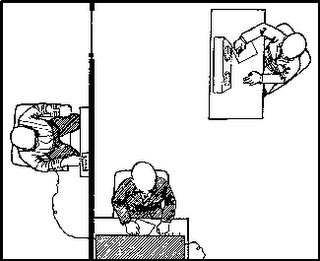AP Psychology
Free Response Review Questions
Question 1.
- Outline the nature-nurture debate in psychology.
- How has this debate helped in understanding the following:
· Gender roles
· Schizophrenia
· Language development
· Phobias
· Brain development
· Intelligence
· Diathesis stress model
Questions 2
How have stage theorists explained the following?
· Moral development
· Physical maturation
· Cognitive development
· Personality development
Question 3
Much of human processing is below the level of conscious awareness:
Explain with reference to the following:
· Insight
· Use of heuristics
· Dreams
· Perception
· Motivated forgetting
Question 4
Psychology aims to provide practical advice on a range of human issues
What advice does psychology offer on the following issues?
· Using Punishment to reduce unwanted behaviors
· Reducing Stress
· Maintaining Mental health
· Improving your memory
· Encouraging pro-social behavior
Question 5
What insights have been provided by evolutionary psychology on the following?
· Attraction
· Eating and obesity
· Phobias
· In-group and Out-group
Question 6
Culture has an important influence on human behavior producing both similarities and differences. Explain with reference to the following:
· Parenting styles
· Gestures
· Emotional expressions
· Depression
· Facial expressions
Question 7
Humans like to think that they are logical and rational beings:
With reference to the following, how has this belief being challenged?
· FAE
· Optical illusions
· Proactive and Retroactive interference
· Belief perseverance
· Overconfidence
· Heuristics
· Groupthink
· Just-world phenomenon
· Learned helplessness
Questions 8
Humans need to interact with the environment to develop:
Explain with reference to the following:
· Language development
· Critical periods
· Brain plasticity
· Bottom-up and top-down processing
· Intellectual development
· Unconditional positive regard
Question 9
How would the different psychological perspectives help someone suffering from a psychological disorder?
· Psychodynamic
· Cognitive
· Humanistic
· Learning
· Biological
Question 10
As social animals, we need to be with others. However being with other can have both positive and negative outcomes. Explain with reference to the following:
· Deindividuation
· Bystander affect
· Social loafing
· Social facilitation
· Conformity
· Obedience
Quesiton11
We are well suited to survive in a highly complex environment? Discuss with reference to the following
· Selective attention
· General adaptation syndrome
· Automatic and effortful processing
· Parallel processing
· Fight or flight response
· Schemas
Question 12
Design an experiment to determine whether listening to different types of music improves academic performance. Identify and explain the importance of each of the following:
· Hypothesis
· Target Population
· Random Sample
· Random Assignment
· IV and DV
· Controls
· Biases
· Use of Statistics
Question 13
Psychology has developed a range of data gathering instruments other than the experiment. Briefly explain how each of the following collects data for investigation:
· Case study
· Survey
· Interview
· Observation
· Longitudinal study
· Cross sectional study
· Correlation study
Questions 14
Psychology has a number of challenges to face in that there are competing theories about important aspects of human behavior. Briefly outline the ongoing debate concerning the following issues:
· The benefits of labeling
· The role of cognition and arousal in emotions
· The person-situation controversy
· The usefulness of therapy
· Perceptions of sounds
· Perception of color
· Absolute thresholds and signal detection theory


